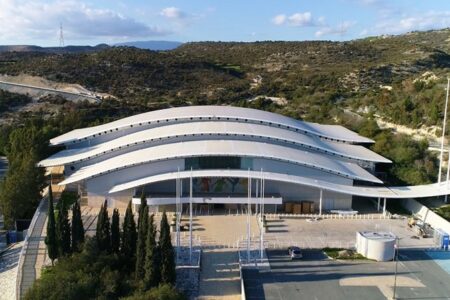12.03.2024
On Tuesday, Parliament approved new rules to reduce energy consumption and greenhouse gas emissions from buildings, which had already been agreed by the Council.
Energy Performance of Buildings Directive aims to significantly reduce greenhouse gas emissions and energy consumption in the EU building sector by 2030 and make the sector climate neutral by 2050. The goal is also to renovate more buildings with poor energy efficiency , as well as provide better communication about the energy performance of buildings.
Emission reduction targets
From 2030, all new buildings will be required to record net-zero greenhouse gas emissions, with the corresponding deadline for new buildings, residential or government owned, set at 2028. EU member states will be able to consider whether a building contributes to global warming throughout its entire lifespan, including all construction products used in its construction, from production to disposal.
For homes, EU member states must take measures to reduce average primary energy consumption by at least 16% by 2030 and by at least 20-22% by 2035.
Under the new directive, EU countries will have to set minimum energy efficiency requirements and ensure that 16% of non-residential buildings with the worst energy performance are renovated by 2030 and 26% by 2033.
By 2030, all new homes must be equipped with solar energy harvesting technologies. The same will apply to public and non-residential buildings, but only if it is technically and economically feasible, depending on the size of each building.
Fossil fuel boilers are being phased out
Member States must take action to decarbonise heating systems and phase out fossil fuels in heating and cooling systems, with a total phase-out of fossil fuel boilers by 2040. From 2025, it is necessary to subsidize autonomous boilers running on fossil fuels. However, financial incentives may continue to be available for hybrid heating systems with a significant proportion of renewable energy, such as systems combining a boiler with a solar thermal installation or a heat pump.
Exceptions
Agricultural buildings and historic buildings may be exempt from the new rules. On a case-by-case basis, EU countries will also be able to decide to exclude buildings protected because of their special architectural or historical value, buildings in temporary use, as well as churches and places of worship.
The directive was adopted with 370 votes in favor, 199 against and 46 abstentions. The bill must now be officially approved by the Council of Ministers to enter into force.
Rapporteur on the Energy Efficiency of Buildings Directive Ciaran Caffe said: “The directive makes clear how climate policy can deliver real and immediate benefits for the least advantaged in our society. The new legislation will help reduce energy costs and tackle the root causes of energy poverty, while supporting thousands of high-quality jobs across the EU. Today’s result shows that Parliament continues to support a Green Deal that pursues social justice and environmental ambitions equally.”
According to the European Commission, buildings in the EU account for 40% of energy consumption and 36% of greenhouse gas emissions. On 15 December 2021, the European Commission introduced a proposal to revise the Energy Performance of Buildings Directive. New EU climate regulation adopted in 2021 enshrines the 2030 and 2050 targets in European law.
Legislation on the energy efficiency of buildings is directly aligned with the proposals of the Conference on the Future of Europe with the aim of strengthening the energy independence of the EU. The Conference proposals reflected in the final text concern strengthening the role of municipalities in urban planning to support blue-green infrastructure, reducing dependence on imported oil and natural gas through energy efficiency projects , and actively supporting energy efficiency projects to achieve greater autonomy in the manufacturing sector and energy supply.
















